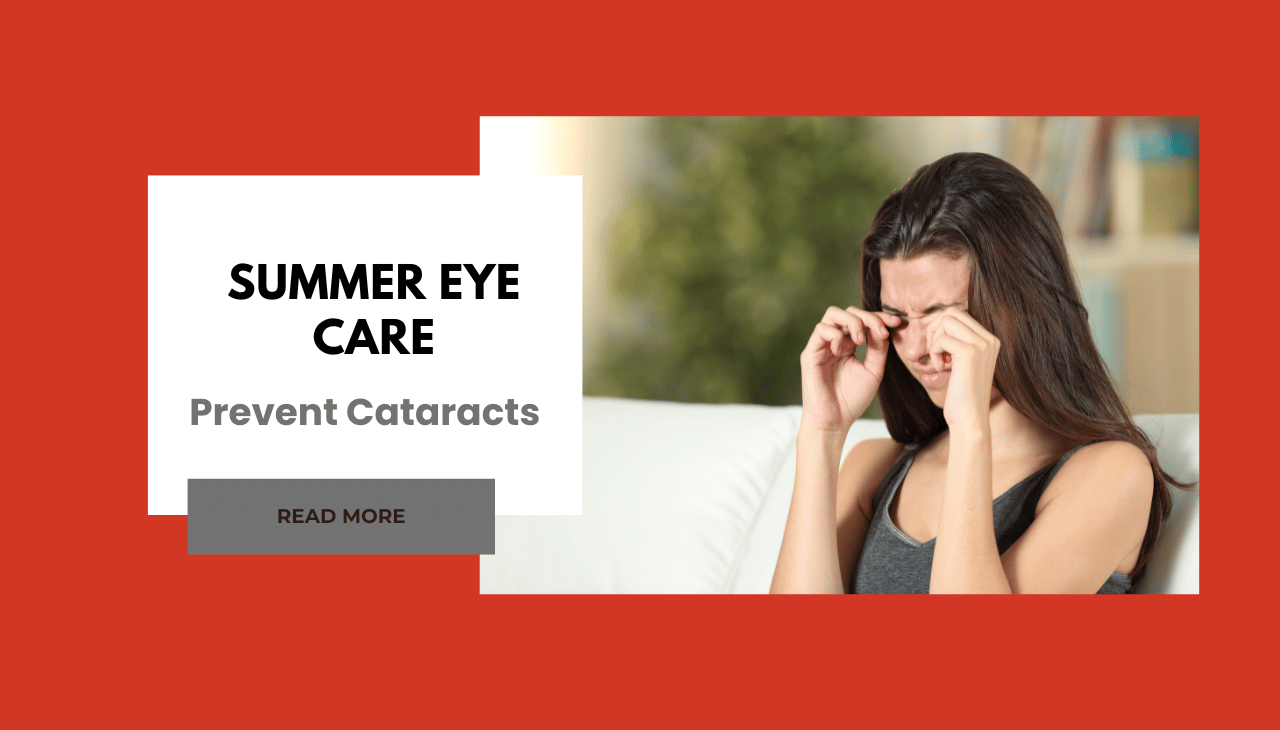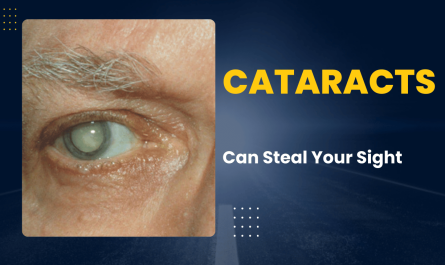Introduction
Summer can be harsh on your eyes. Strong sunlight, heat, dust, and UV exposure all play a role in increasing your risk of eye problems—especially cataracts. Cataracts cloud your natural lens, affecting vision and reducing your quality of life. They are more common with age, but summer habits can either delay or speed up their development.
This blog shares simple, natural ways to protect your eyes during summer. You’ll learn what cataracts are, what causes them, and what you can do to prevent or delay them. These tips are easy to follow, practical, and helpful for all age groups.
What Are Cataracts?
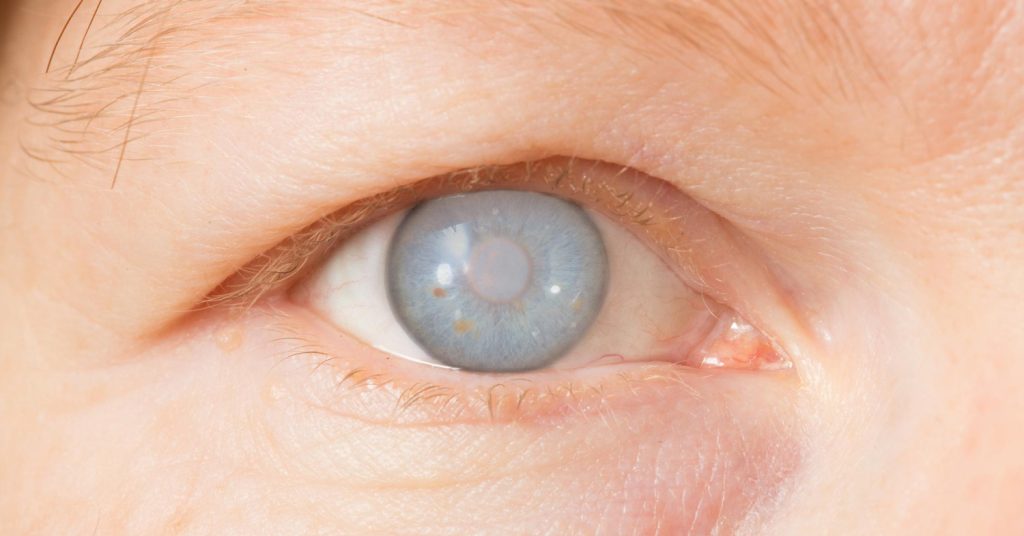
A cataract is a clouding of the eye’s natural lens. This lens sits behind the iris and helps focus light on the retina. When it becomes cloudy, vision becomes blurry or dim.
Cataracts can form in one or both eyes. They don’t spread like infections but grow slowly over time. Early symptoms are mild but gradually worsen.
Types of cataracts include:
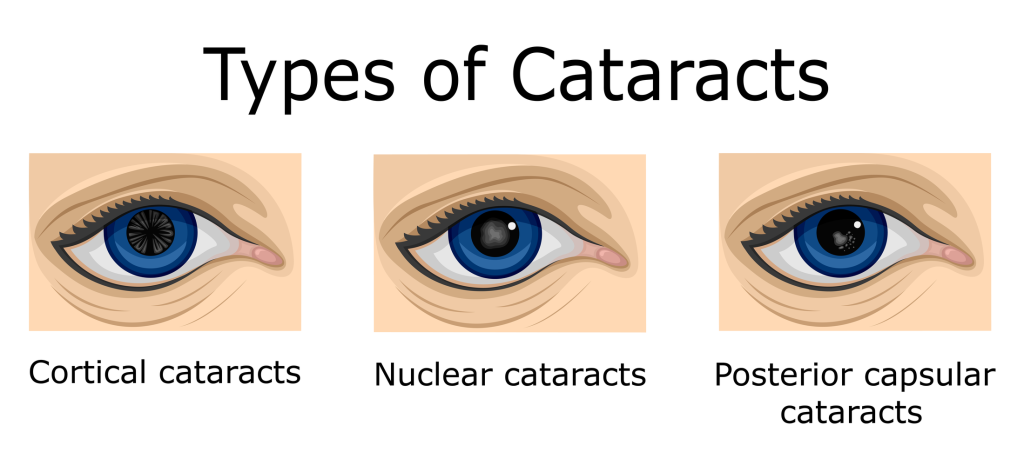
- Nuclear cataracts (center of the lens)
- Cortical cataracts (edges of the lens)
- Posterior subcapsular cataracts (back of the lens)
Cataracts are common with age, but other factors like UV exposure, smoking, and diabetes can increase the risk.
Why Summer Increases Cataract Risk
1. UV Radiation
Direct exposure to sunlight without eye protection can speed up cataract formation. Ultraviolet (UV) rays damage proteins in the lens.
2. Dehydration
Hot weather leads to fluid loss. Your eyes need hydration to stay healthy. Dry eyes are more vulnerable to damage and irritation.
3. Excessive Screen Use
Many people use phones and laptops indoors during summer. Prolonged screen time strains the eyes and may increase oxidative stress, which affects lens clarity.
4. Dust and Pollution
Outdoor activities during summer expose you to dust, which can cause eye irritation and inflammation—both potential triggers for cataract development.
Summer Tips to Prevent Cataracts Naturally
1. Wear Sunglasses
Use sunglasses that block 100% UVA and UVB rays. Avoid fashion glasses that don’t provide UV protection. Wraparound designs offer better coverage from the sides.
Keep an extra pair in your car, office, or bag. UV exposure adds up even on cloudy days.
2. Eat Eye-Friendly Foods
Choose foods rich in antioxidants:
- Leafy greens: Spinach, kale
- Fruits: Oranges, blueberries, mangoes
- Nuts and seeds: Almonds, flaxseeds
- Fish: Salmon and sardines (omega-3 fatty acids)
Antioxidants help neutralize free radicals that damage the lens.
3. Stay Hydrated
Drink enough water throughout the day. Dehydration affects tear production and eye lubrication. A simple rule—carry a water bottle and sip regularly.
Coconut water, lemon water, and homemade fruit juices are good summer choices.
4. Reduce Screen Time
Take a 20-second break every 20 minutes and look at something 20 feet away. This reduces eye strain. Use anti-glare screens or blue light filters.
Avoid watching screens in dark rooms. Keep your screen at eye level to reduce squinting and dryness.
5. Use Hats or Umbrellas
Wearing a wide-brimmed hat while walking in the sun reduces UV exposure by nearly 50%. It’s an easy way to add another layer of protection for your eyes.
6. Maintain Good Hygiene
Always wash your hands before touching your eyes. Avoid rubbing them frequently, especially if you’re outdoors. Use a clean cloth to wipe sweat.
If your eyes feel itchy or red, rinse with clean water or use prescribed lubricating drops.
Expert-Recommended Eye Habits
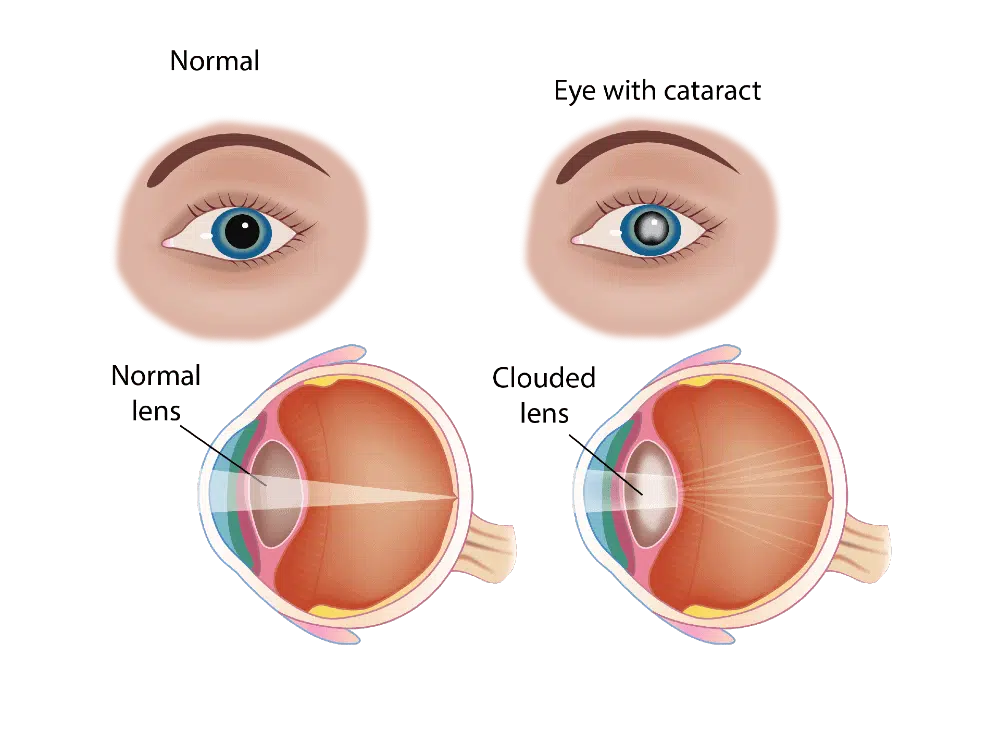
- Don’t skip your annual eye check-up. Early signs of cataracts are best caught through routine exams.
- Stop smoking. Smokers are more likely to develop cataracts early.
- Manage health conditions like diabetes and hypertension, which affect eye health.
- Use proper lighting while reading or working indoors.
- Avoid over-the-counter eye drops without a doctor’s recommendation.
Consultation at Laxmi Eye Institute
Laxmi Eye Institute is one of the leading chains of eye hospitals in Mumbai. With over 30 years of trusted service, it offers complete eye care under one roof.
Known for transparent treatment, highly experienced doctors, and modern diagnostic facilities, the institute operates clinics in Panvel, Kharghar, Kamothe, and Dombivli.
They specialize in:
- Specs Removal / LASIK (Bladeless LASIK, ICL and IPCL, Contoura Vision LASIK)
- Cataract surgery
- Glaucoma treatment
- Diabetic Eye care
- Retina treatment
- Pediatric Ophthalmology
- Corneal diseases and keratoconus
- Eye donation and cornea transplant programs
Laxmi Eye Institute is also home to one of India’s most respected cataract training programs. Their specialists train ophthalmologists from across the country.
Clinic Locations:
Laxmi Eye Clinic (Dombivli)
1st Floor, SS Business Park, Gharda Circle, Azde Gaon, Dombivli East, Mumbai, Maharashtra 421201
Laxmi Eye Clinic (Kharghar)
Office 108–110, Anant CHS, Plot 31, Sector 4, Kharghar, Navi Mumbai, Maharashtra 410210
Laxmi Eye Hospital (Panvel)
Mulla Hamid Rd, Old Panvel, Navi Mumbai, Maharashtra 410206
Laxmi Eye Institute (Kamothe)
Shop No 26/27, Near ICICI Bank, Pratik Gardens, Plot No 153–165, Sector 34, Kamothe, Navi Mumbai, Maharashtra 410209
To book an appointment, visit the nearest clinic or call for consultation details.
FAQs
1. Can cataracts be reversed naturally?
No. Cataracts cannot be reversed without surgery. However, you can delay their onset by protecting your eyes and adopting healthy habits.
2. Is UV exposure the main cause of cataracts?
It is one of the major causes. Long-term exposure to UV rays can damage the eye’s lens and speed up cataract formation.
3. How often should I get my eyes checked?
Once every year if you’re over 40 or have existing health issues. Children and young adults should have eye exams every 2 years.
4. Do home remedies like honey or rose water help?
There is no scientific proof. Avoid putting anything into your eyes without a doctor’s prescription.
5. What age do cataracts usually start?
Most people start developing cataracts after the age of 50. But poor lifestyle habits and UV exposure can cause early onset.
6. Are sunglasses really effective?
Yes. Quality sunglasses that block 100% UVA and UVB rays protect the lens and delay cataract formation.
7. Does screen time increase cataract risk?
Indirectly, yes. Screens can cause eye strain and reduce blinking, which leads to dryness and oxidative stress—risk factors for early cataracts.
8. Can children get cataracts?
Yes. Though rare, some children are born with congenital cataracts or develop them due to trauma or medical conditions.
Take simple steps this summer to protect your eyes. Eat well, wear UV-blocking sunglasses, stay hydrated, and reduce eye strain. These everyday habits can go a long way in keeping cataracts at bay.
And if you notice any vision changes, don’t ignore them. Get your eyes examined by a specialist at Laxmi Eye Institute. Your eyes deserve expert care.

